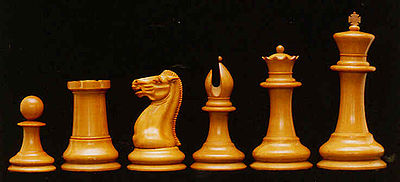CHESS: COLUMN LET’S PLAY CHESS- Russian Championship sans big guns By Edgar De Castro
LET’S PLAY CHESS
By Edgar De Castro

The 70th Russian Championship was held in the city of St. Petersburg, simultaneously with the London joust.
The all-GM, single round robin event (Dec. 3-14), had 12 participants, including the Kremlin’s young stars and aspiring hopefuls. The absence of Russian big guns – Kramnik, Kariakin, Grischuk, Nepomniachtchi and Jakovenko – considerably lowered the strength of the competition to a category 18 on the FIDE scale.
St. Petersburg native Peter Svidler, the highest rated, topped this year’s edition, beating Nikita Vitiugov, 2-0, in the rapid tiebreaker. It was Svidler’s eighth Russian championship plum. The tourney resulted as follows: Svidler and Vitiugov, 7.0; Dubov, Fedoseev, 6.5; Malakhov, Tomashevsky, Riazantzev, 6.0; Sjugirov, Iniarkeiv, 5.0; Matlakov, 4.5; Romanov, 3.5 and Volkov, 3.0.
* * *
ADVERTISEMENT: This space is reserve for your Ad, contact aseanews.net now!
<>
In the following game, tournament winner Caruana ”avenged” himself against the same opponent who defeated him decisively in the 2016 Candidates Tournament.
London Chess Classic 2017
W) S. Kariakin (Russia)
B) F. Caruana (USA)
Sicilian Defense
1. e4 c5
2. Nf3 e6
3. d4 cxd4
4. Nxd4 Nc6
5. Nc3 Qc7
6. Be3 a6
The Taimanov variation, a well-known Sicilian variant strongly recommended in the 70s, but only the Russian world contender, Mark Taimanov, succeeded in making it popular. Black’s idea is to develop his Q-side pieces early, while reserving his options on the other wing.
7. Qf3!? …
White’s last is an unproven commodity, a rare sideline seldom seen in top level competition. More usual nowadays is 7. a3 or 7. f4, when Black can transpose into the Scheveningen variation with 7…d6 and 8…Nf6.
7…. Ne5!?
Double-edged but interesting. After 7…Bb4 8. Nxc6 Bxc3ch 9. bxc3 Qxc6, the ensuing middle game hangs in the balance. And if 7…Nf6 8. Nxc6 bxc6 9. 0-0-0 Be7 10. Be2 d6 11. Qg3 0-0, the position is near equality.
8. Qg3 b5
9. O-O-O?! …
Seems premature to say the least. Instead, a waiting attitude such as 9. a3, would be the simpler and most natural continuation.
9…. Nf6
10. f4 Neg4
11. Bg1 h5!
In this kind of setup, Black is not hard put to achieve equality. There are also good alternatives, but the text is most accurate according to the engine.
12. e5 …
After 12. Bd3 b4 13. Nce2 e5 14. h3 exf4 15. Qxf4 Qxf4 16. Nxf4 Ne5, Black obtains equality.
12…. b4
13. Na4 Nd5
14. Nb3 Bb7
15. Nac5 Bc6
16. Ne4 f5
17. h3?! …
Not a good choice. 17. exf6 is much better, according to the engine.
17…. h4!
The refutation of White’s last move.
18. Qe1 fxe4
19. hxg4 Nxf4
20. Rxh4 Rxh4
21. Qxh4 Qxe5
Now White loses a pawn without compensation.
22. Bd4 Ng6
23. Qh3 Qg5ch
24. Kb1 Bd5
25. Bg1 Be7
26. g3? …
The decisive mistake. Correct is 26. Be3, and White would be in a position to offer a longer resistance.
26…. Ne5
27. Be2 Nf3
28. Bxf3 exf3
Now Black’s two connected passed pawns will rule the waves.
29. Bd4 Kf7
30. Nc1 d6
31. Nd3 e5
32. Bf2 Be6
33. Nxb4 e4
34. Qh1 Rc8
35. Nxa6? …
This loses quickly, but other tries for White also fail. E.g. 35. c3 a5 36.Nc2 Qxg4 and Black has an easy win.
35…. Qa5!
After the text, either White swap Queens into a lost ending or loses material. The rest needs no further comment.
36. Qh5ch Qxh5
37. gxh5 Bg5
38. Re1 Bc4
39. Nb4 Re8
40. Re3 Bxe3
41. Bxe3 Re5
42. g4 Rg5
0:1
If 43. b3 (43. Bxg5? f2 wins) Be2, 44. Kc1 Rxg4 45. Nd5 Rf2 46. Nc3 f2 ends the story.
Solution to last week’s puzzle:
White to move and win.
White=Kh1, Rc5, Rd1, Nd6, Ne6, Pa2, Pb2, Pf4, Pg2, Ph2
Black=Kb8, Ra8, Rh8, Nc6, Ng6, Pa7, Pb7, Pf6, Pg7, Ph7
1. Rxc6! bxc6, 2. Rd3 … Threatening 3. Rb3 mate.
2… a5, 4. Rb3ch Ka7, 5. Rb7ch Ka6, 6. Nc5 mate.
White to play and win.
COURTESY:
The Philippine Star
Updated December 17, 2017 – 12:00am
.
For comments, Email to :
SPORTS STATION | [email protected] | Contributor









